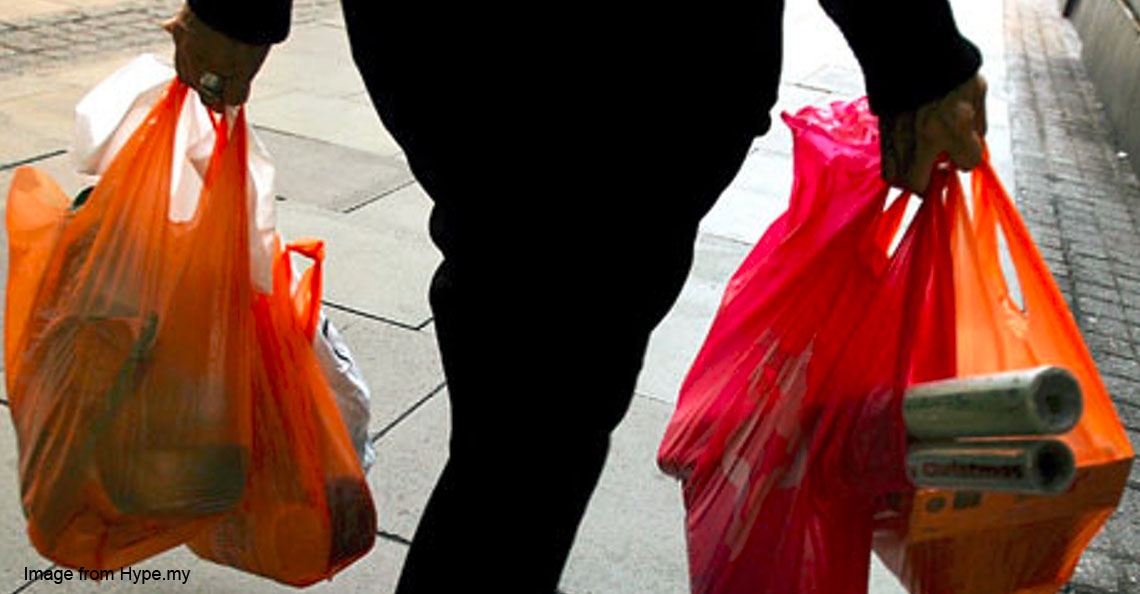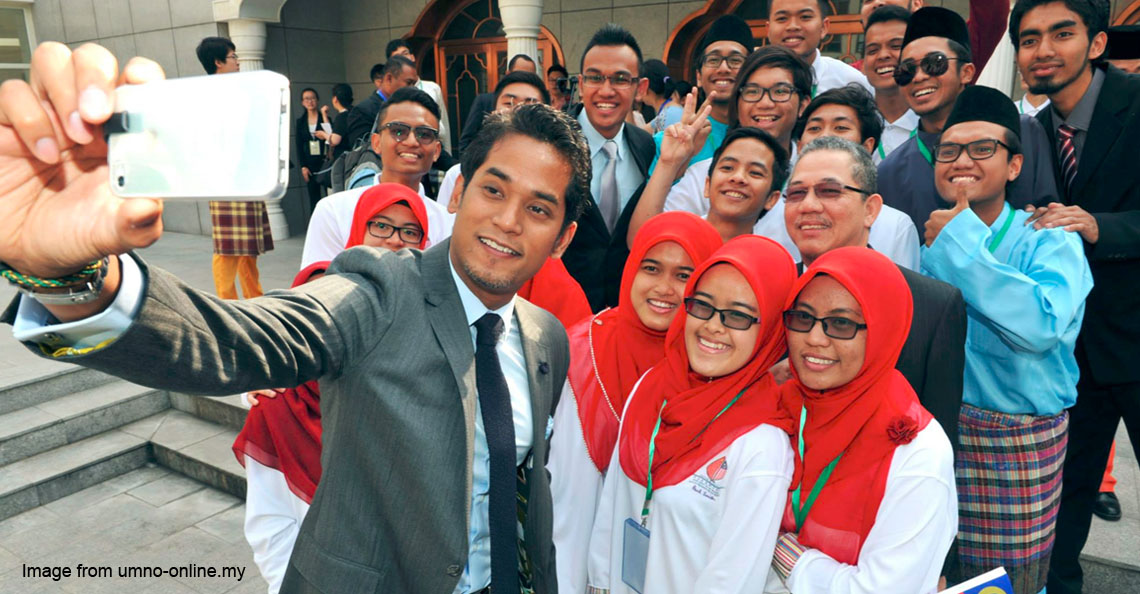Malaysia invited to China’s RM 1 trillion trade deal, but Tun M has some concerns.
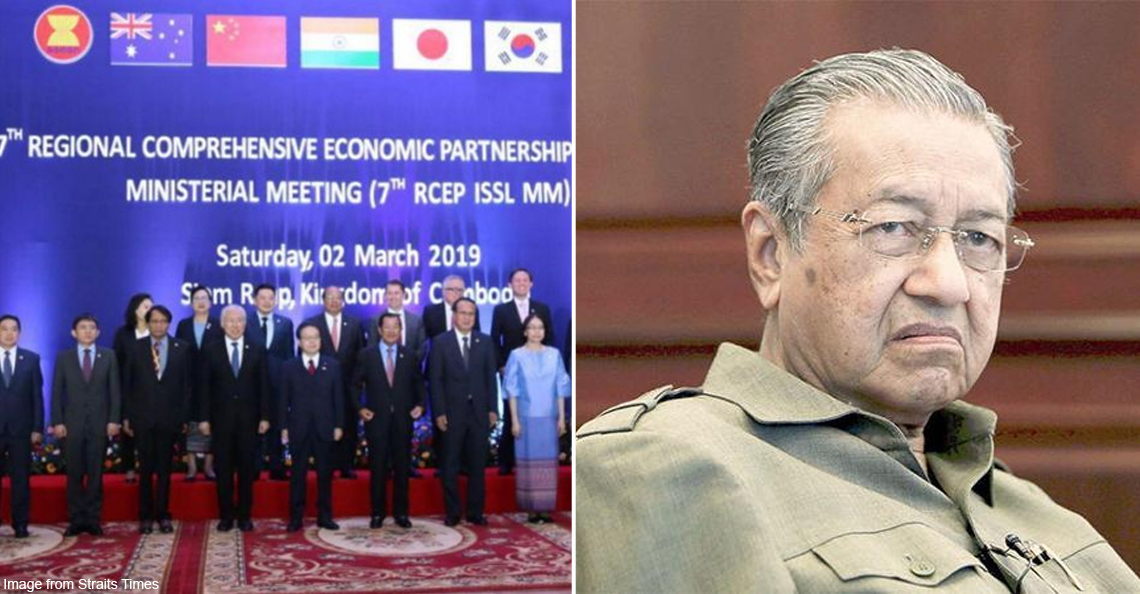
- 320Shares
- Facebook280
- Twitter9
- LinkedIn8
- Email9
- WhatsApp14
Unless you’re an econs graduate or a regular reader of business news, the term ‘free trade agreement’ or even ‘trade deal’ might not be common for you. Heck, your knowledge of the term might even just be from that Trump meme that went around a couple years back:
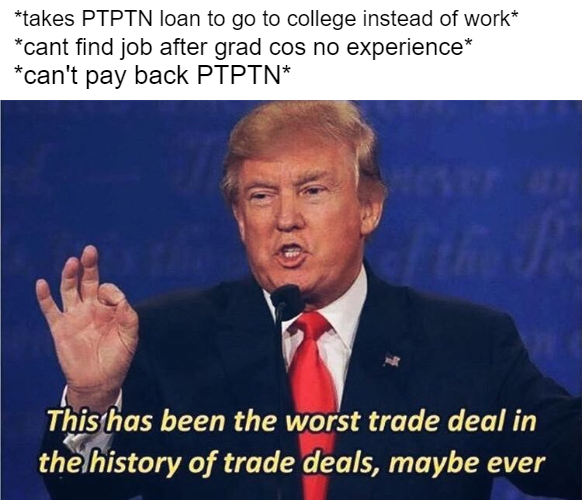
But for reals tho, a couple of years back, you might’ve seen the term TPPA been thrown around the news alot about how it might affect Malaysia; we even did an article on it too. However, the Trans-Pacific Partnership Agreement is now more or less dead in the water after Trump pulled the United States out of the deal.
However, that ain’t the end of Malaysia’s involvement with major free trade deals around the world. In fact, we’re already super close to getting to being part of another multinational trade deal: the Regional Comprehensive Economic Partnership (RCEP).
It’s kinda like China’s own version of the TPPA
Okay so quick reminder – the TPPA was a US-led multinational trade deal that would’ve seen huge changes towards regulations on intellectual property, state companies, labour laws and more. Around the same time that the US began talks for the TPPA, China would also announce in 2012 that they too are looking at creating a major free trade deal called the RCEP that involves sixteen countries, with the potential deal accounting for roughly 39 percent of the world’s GDP, and involves almost half of the world’s population.
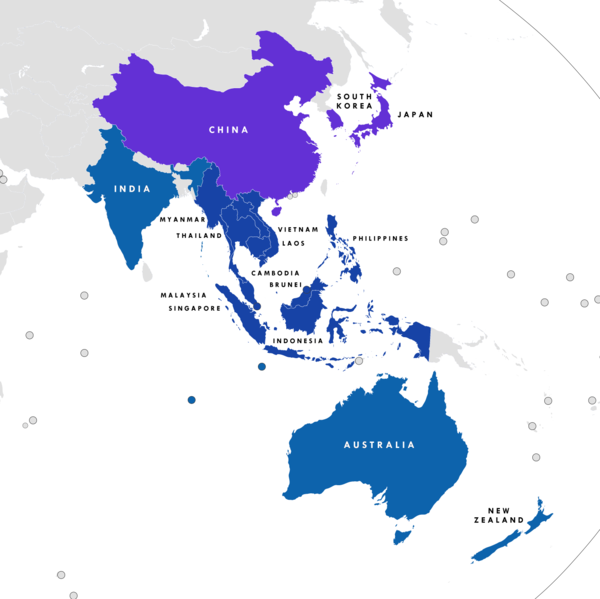
Now we won’t be detailing everything about the RCEP – mainly because the deal so far isn’t done and details have also been kept in secret, so most of what we know comes from news sources and govt ministries (more on that later). However, if you really, really, really got a lot of time to kill, you can click here to check out a bunch of alleged RCEP documents that have been leaked over the years.
But essentially, the RCEP is a trade deal that covers these areas:
- Trade of goods
- Trade of services
- Competition
- Intellectual property
- Economic and technical cooperation
- Investment
- Dispute settlement
It would also seek to eventually lower taxes and tariffs for trade across member countries that are ‘developing economies’, aka Malaysia. By doing so, these ‘developing economies’ should in theory catch up with the world’s major powers. A 2016 forecast even estimated that with RCEP onboard, global income would increase by an estimated USD260 BILLION! That’s RM1,089,270,000,000.00 – imagine the number of PTPTN loans you can pay off with that!
That’s just the economic side of it tho. One of the RCEP’s key factors that makes it so important in world politics is that it doesn’t include the USA, and is led by China. This could end up allowing China to add to its status as a world power.
Of course, unless you’re a diplomat, this might not mean much to you. In fact, despite all the potential benefits, there are some concerns over the deal (which we’ll get to in a bit). So let’s just get to the question that many of the rakyat might have in your mind: what’s in it for Malaysia?
The govt says RCEP might boost Malaysia’s business with the world
When we were researching this story, we too were wondering what are the benefits that the RCEP will give to Malaysia? Well as it turns out, there’s an entire govt website under the Ministry of International Trade and Industry dedicated to Malaysia’s involvement with the RCEP, which you can check out here if you’d like.
In short tho, they list of the benefits of the RCEP to Malaysia as:
- Allows for more economic integration in the region, which in turn boosts Malaysia’s standing as a trading nation.
- Simplifies the multiple current trade deals that ASEAN countries have with various nations, leading to a better environment for Malaysian businesses
- Has India and China involved, meaning Malaysia can tap into these markets easier
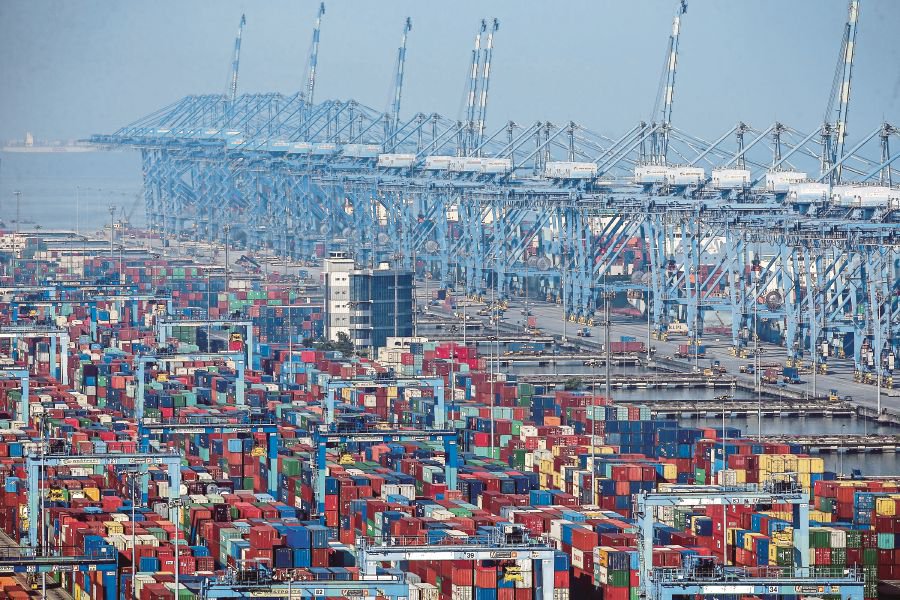
Furthermore, the International Trade and Industry Minister Darell Leiking, who’s representing us at the RCEP talks btw, is positive about the trade deal. He added that while some parts of the RCEP were discussed before GE14 and so can’t be changed, the current govt is determined to protect Malaysia’s interests and sovereignty in the remaining meetings with the RCEP countries involved.
“When we create a new economic bloc, we have to listen to the people and our interest… We have to make sure we avoid all the pitfalls… We will not compromise the sovereignty of the country to conclude the trade deal,” – Darell Leiking, International Trade and Industry Minister, as quoted by Malaysiakini
YB Minister Datuk Darell Leiking leads Malaysia's delegation at the 7th RCEP Ministerial Meeting (RCEP MM) in Bangkok.@DarellLeiking @imokman @lha_miti pic.twitter.com/cCHr0A0uZd
— MITI Malaysia (@MITIMalaysia) September 8, 2019
Furthermore, according to a 2016 article by USIM’s Dr Amalina Ahmad, because the RCEP deal is centered around the ASEAN region, Malaysia stands to gain simply due to Malaysia being more geographically relevant. Dr Amalina also said that the RCEP could lead to more investment from China and Japan.
But like how every coin got two sides, even with the RCEP, not all is rosy la. In fact, there’s quite a bit of opposition to it too.
Critics say it’s a lopsided deal that won’t benefit Malaysia
A coalition of Malaysian NGOs by the name of Bantah has come out to voice concern following Darell Leiking’s comments that we’re almost done negotiating for the RCEP. According to Bantah, there’s been a big lack of transparency regarding just what exactly is in the RCEP agreement, cos like mentioned earlier, while there are leaks of the RCEP drafts over the years, the actual draft agreement is still under lock and key.
“It is a big agreement impacting everyone but the details are shrouded in secrecy. We believe that the rakyat must know the scope of the RCEP being negotiated to avoid any clear and present dangers to Malaysia,” – Azlan Awang, Bantah member, as quoted by Free Malaysia Today
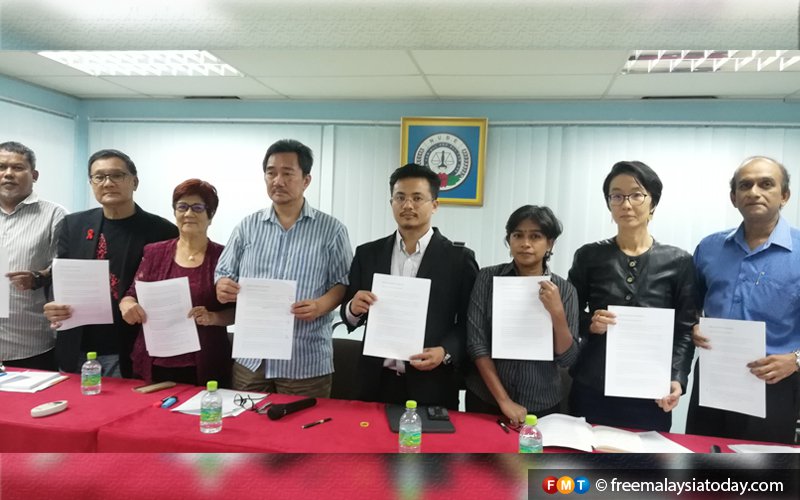
On top of that, Bantah points out that we already have multiple free trade agreements with almost all other countries in the RCEP already, with India being the only exception. Bantah claims that this means we’ll be signing a deal that sees us agreeing to the various demands of RCEP, but the only real benefit is India removing tariffs on Malaysian exports. For example, Australia and New Zealand are already going to remove their tariffs on Asean countries due to existing trade deals, so the RCEP might not boost our exports down under. Meanwhile, China, Japan and South Korea have also removed certain tariffs under similar conditions.
“More markets for Malaysian exports are often used as the main reason for these agreements. However, Malaysia already has free trade agreements with all other RCEP countries and so only India is likely to reduce or remove more tariffs on Malaysian exports via the RCEP…
Therefore, Australia, Japan, South Korea and New Zealand have nothing to offer Malaysia in return for Malaysia agreeing to their demands for stronger intellectual property protection, services liberalisation, investment liberalisation and protection,” – Bantah, as quoted by Malaysiakini
Another highly controversial part of the RCEP is that it doesn’t cover environmental or labour standard concerns, nor does it cover issues like corruption and global inequality. In fact, over the years, plenty of people from around the world have come out to oppose the RCEP. Health care activists for example have complained that the RCEP would have the effect of forcing India to stop producing cheaper generic medication for poorer countries, due to it’s tough stance on intellectual property.
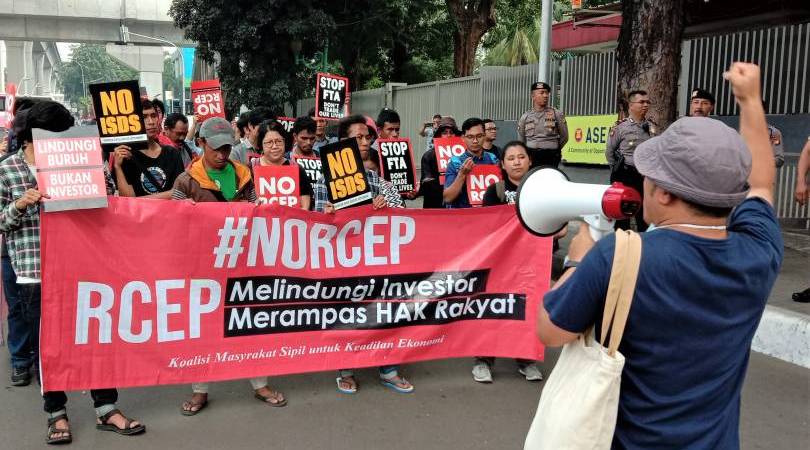
So we guess the final question is: we signing it or not now?
It’s probably still on for now, but Dr M says he won’t let Malaysia sign an unfair deal
As for the concerns surrounding the RCEP, Prime Minister Dr Mahathir had stated late last year that Malaysia will not sign the RCEP or any trade deal if it was not a fair deal for Malaysia.
“Sometimes, international relations are received differently by different segments of our population. We can’t just accept something that sounds reasonable for other countries, but may not sound reasonable for many people in our country. We want to avoid conflicts in our country resulting in our acceding to foreign ideas,” – Dr Mahathir, as quoted by Malaysiakini
Nevertheless, the latest RCEP meeting is actually going on right now in Vietnam, and earlier this month, Darell Leiking had already pointed out that RCEP negotiations have been positive so far. It seems likely that the RCEP could be finalised by this year.
As for how well it actually improves (or worsens) Malaysian businesses tho, we’ll have to wait until the RCEP is finalised.
- 320Shares
- Facebook280
- Twitter9
- LinkedIn8
- Email9
- WhatsApp14

